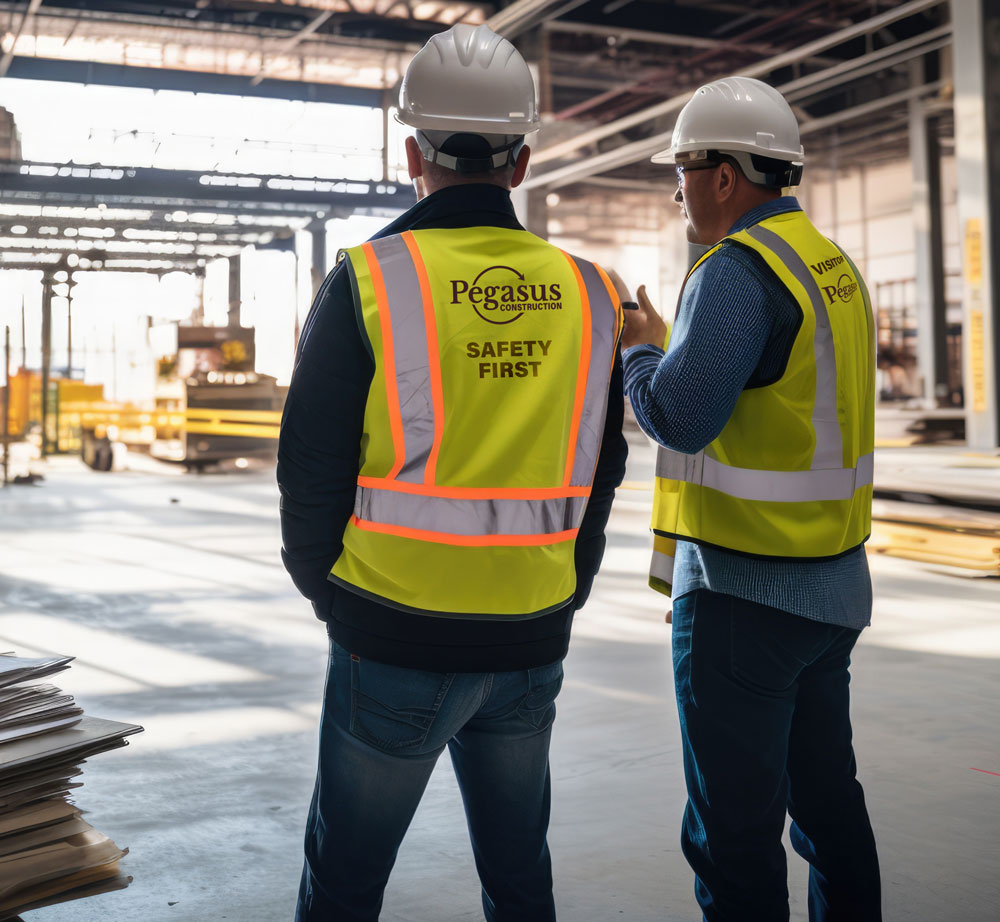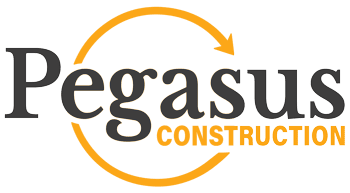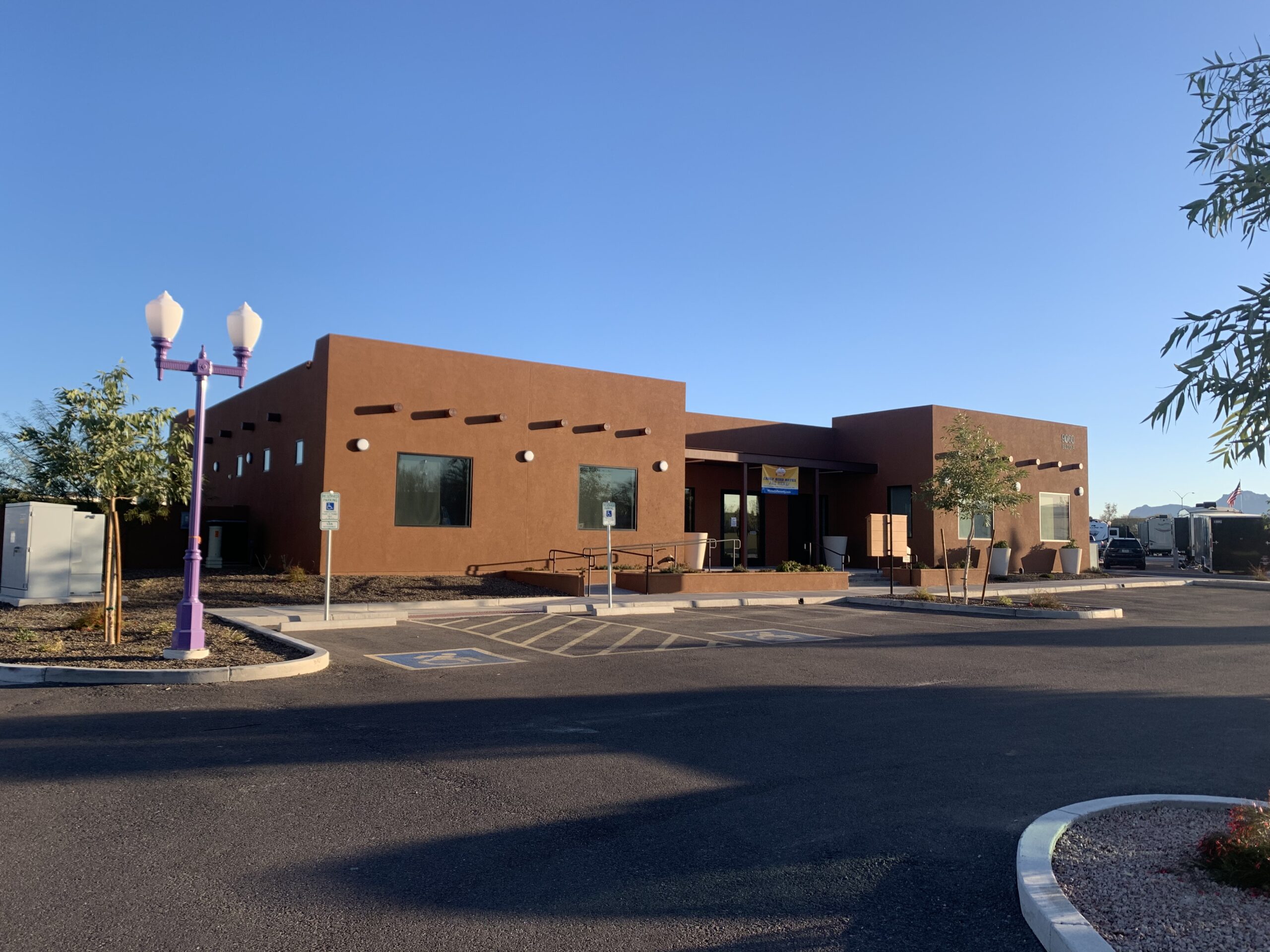
Phoenix General Contractors: What Questions to Ask Before Hiring
Phoenix is expanding fast. From high-rise offices and retail centers to industrial parks and medical facilities, new construction projects are everywhere. For developers, business owners, and property managers, choosing the right local general contractor is one of the most important decisions they’ll make. Get it right, and your project runs smoothly, stays on budget, and finishes on time. Get it wrong, and you’re in for delays, headaches, and unplanned expenses.
That’s why it pays to ask the right questions before signing a contract. Too many owners hire based on cost alone without fully understanding what a contractor brings to the table. And too often, they end up frustrated with missed timelines or poor communication.
This article is built to help you avoid that outcome. Whether you’re planning an office build, warehouse, or commercial renovation, we’ll walk you through the key questions to ask any contractor in Phoenix AZ. These aren’t filler questions. They’re the ones that separate the pros from the rest. If a contractor can’t answer them with confidence, you may want to keep looking.
Why the Right Questions Make All the Difference
Construction in Phoenix brings its own set of challenges. From navigating city permits and building codes to dealing with the heat and soil conditions, local knowledge makes a big difference. Asking smart, direct questions before you hire helps protect your investment, your schedule, and your reputation.
Poor planning or vague expectations can derail even the most well-funded projects. That’s why your interview with a contractor should go beyond the basics. The right questions expose how organized they are, how they communicate, and how they’ve handled past builds. It also gives you a chance to hear how they solve problems, not just build structures.
When a contractor welcomes these questions, that’s a good sign. It shows they have nothing to hide, and they’re used to clients who want clarity. The goal is to walk away with a clear sense of how they operate, how they budget, and how they manage crews and deadlines.
Are You Licensed, Bonded, and Insured in Arizona?
This is where every conversation should start. A contractor without the right license or insurance has no business working on a commercial project in Phoenix. Unfortunately, some people try to cut corners or pass themselves off as qualified when they are not.
Ask to see their license number and verify it with the Arizona Registrar of Contractors. This confirms they are legally registered to work in the state. Being bonded means they have a financial guarantee in place to cover damages if they fail to complete the job or meet terms. Insurance, on the other hand, protects you and them in case of injury or damage during the project.
Without this coverage, you could be on the hook for accidents or errors that happen on-site. It is not enough for a contractor to say they are covered. Get the paperwork, double-check it, and keep it on file. If they hesitate or brush off this request, walk away.
Can You Share Examples of Similar Projects in Phoenix?
Phoenix is a unique market. Whether it is heat management, specific soil prep, or city inspection timelines, it helps to work with someone who knows how this city runs. Ask for examples of previous work that match the type of project you are planning. If you are building medical offices, you want a contractor who has experience in that sector, not just residential work.
Request case studies, photos, and references. Don’t just take a name and number. Call and ask those past clients how the contractor handled challenges, communicated updates, and delivered on their promises.
This also gives you a chance to see how they’ve handled Phoenix-specific factors like permitting delays, desert terrain, or city planning meetings. A contractor with experience in this region will already have solutions for these scenarios. They may even have relationships at city departments that keep things moving faster.
What Does Your Pre-Construction Process Look Like?
What happens before the first shovel hits the dirt? That’s what separates strong contractors from the ones who wing it. Pre-construction is the phase where budgets, timelines, logistics, and permitting are all planned out.
Ask whether they include site evaluations, architectural coordination, and material selection up front. Do they help flag potential issues early? Do they build a clear scope of work with contingencies? You want a contractor who digs into the details before anything begins.
Many construction delays start because something was missed during planning. Maybe a permit took longer than expected, or a needed approval was skipped. A contractor who manages a thorough pre-construction process helps prevent that.
Look for someone who has systems in place and offers clear communication during this stage. If they gloss over this phase or give vague answers, that’s a red flag.
How Do You Handle Subcontractors and On-Site Supervision?
No general contractor does it alone. They rely on subcontractors for everything from framing and concrete to electrical and plumbing. Ask how they vet, hire, and manage those subs. Are they using people they’ve worked with before? Do they have a trusted network, or are they hiring whoever is cheapest?
Also ask about on-site supervision. Will there be a full-time superintendent on your job? How often is the project manager on-site? If no one is watching the day-to-day work, things can fall apart quickly.
Strong contractors put leadership on the job site. They communicate with trades, handle supply chain coordination, and make sure the build meets your expectations. Without supervision, mistakes go unnoticed, schedules slip, and accountability disappears.
You want a contractor who takes ownership of every crew and every deadline. Ask how often they walk the job, how issues are escalated, and how quality is reviewed.
What Is Your Approach to Permits and City Inspections?
Phoenix permitting is not always quick. Depending on the type of build, it can take weeks or even months to get everything cleared. That’s why you need a contractor who knows how the local system works.
Ask how they handle the permitting process. Do they submit all documents, track approval timelines, and coordinate inspections? Or are they expecting your architect to handle that?
Experienced contractors often have direct contacts in planning, zoning, and inspection offices. They know how to fast-track certain reviews and keep paperwork moving. Ask how often they’ve worked with the Phoenix permitting system, and whether they anticipate any roadblocks based on your type of project.
Also ask how they prep for inspections. Failed inspections can delay everything. You want a team that builds to code from day one and stays in sync with the city.
What Does Your Timeline Look Like, and What Happens if There Are Delays?
Before you commit to a contractor, ask for a projected timeline that outlines key phases. This should include pre-construction, ground prep, vertical build, and final inspection. The more detailed, the better.
Next, talk about what happens if things fall behind. How do they manage delays caused by weather, supply shortages, or subcontractor issues? Do they build buffers into the schedule? What is their change order process if something shifts?
Good contractors are realistic. They build in some flexibility, track progress daily, and communicate often. You don’t want a team that overpromises and underdelivers. You want one that sets a realistic bar and meets it with discipline.
Ask if they use software to manage the project timeline and share updates with clients. If they don’t have a method for tracking progress, that should raise concerns.
Can You Break Down the Payment Schedule?
Money should always be discussed upfront. Ask how and when payments are due. Is it a percentage up front, followed by payments at key milestones? Do they request payment before or after work is completed?
You want to avoid large upfront payments. Most reputable contractors will request a modest deposit, then tie payments to deliverables. For example, payment after the foundation is poured, or after rough plumbing is installed.
Also ask about lien releases. These protect you by ensuring subcontractors and suppliers have been paid, and no one will place a lien on your property. A professional contractor should be familiar with this and provide them routinely.
Transparency is the goal. You want clear paperwork, itemized budgets, and proof that funds are being managed responsibly. If anything feels vague or rushed, pause and review.
How Do You Communicate During the Project?
Every successful build depends on communication. Ask how your contractor plans to keep you informed. Will you get weekly updates? Do they use emails, job tracking apps, or in-person meetings?
Also find out who your point of contact will be. Will you talk to a project manager, site supervisor, or the owner? You want someone who is accessible, responsive, and willing to answer your questions quickly.
Miscommunication leads to mistakes, and mistakes cost money. A good contractor will keep you in the loop and respond promptly when you need clarity.
Ask to see examples of project dashboards or update reports they’ve sent to past clients. If they can’t show how they communicate, that’s worth thinking about.
How Do You Prioritize Safety on the Job Site?
Safety isn’t just a legal issue. It’s a sign of professionalism and care. Ask your contractor about their safety procedures, training requirements, and site protocols.
Do they hold safety briefings? Are workers OSHA certified? Is there a safety officer on-site? How do they handle incidents if they occur?
Safety impacts everything. A single injury can delay a project and increase costs. More than that, it shows whether the contractor values their team and your property.
PCI, for example, builds safety into every part of the job, from initial setup to final walk-throughs. A good contractor will have similar systems and take pride in protecting their people and your investment.
What Else Should You Be Asking?
In addition to the nine questions above, here are a few more to keep in your back pocket:
- Do you offer design-build services or work directly with architects?
- Can I visit a current project site?
- What happens if there is a dispute or disagreement?
- Do you provide post-construction support or warranties?
- How do you handle changes once construction has started?
Asking more questions is a sign that you care about outcomes. Contractors should be ready to have these conversations and provide clear answers. It is not about grilling them. It is about making sure both sides are aligned from the beginning.
How PCI Answers These Questions With Confidence
At PCI, we welcome every one of these questions. We want you to feel confident, informed, and fully prepared before we break ground. Our team brings deep experience in commercial builds across Phoenix, including offices, healthcare facilities, and industrial spaces.
We stay transparent about our process, realistic about our timelines, and committed to the outcome. If you’re interviewing general contractors in Phoenix, we invite you to start with us. We’ll walk you through every detail and show you why clients trust us to build what matters.
FAQs About Hiring General Contractors in Phoenix
What should I look for in a general contractor in Phoenix AZ?
Check for licensing, insurance, local experience, and a clear pre-construction plan.
How can I verify a contractor’s license in Arizona?
Go to the Arizona Registrar of Contractors and search using the license number provided.
What does a general contractor actually do?
They manage the full construction process including planning, hiring subs, coordinating inspections, and overseeing timelines.
Should I get multiple bids before choosing a contractor?
Yes. It’s smart to compare at least three detailed proposals to assess value and professionalism.
How long does a commercial build take in Phoenix?
Most projects range from six months to a year depending on scope, permits, and weather.
What’s the average cost per square foot for commercial construction in Phoenix?
It varies, but you can expect anywhere from $150 to $400 per square foot based on finishes and use case.
How involved should I be during the build?
You should attend regular updates, site visits, and review progress reports. Stay engaged without micromanaging.
What red flags should I watch out for?
Vague pricing, no references, poor communication, or aggressive payment demands are all warning signs.
Can I make changes once the project is underway?
Yes, but expect a formal change order process with cost and time adjustments clearly outlined.
Talk to a Phoenix Contractor That Knows the City
You’ve got the questions. Now you need a contractor who can answer them with clarity and confidence. At PCI, we’ve been building across Phoenix for years, and we know the ins and outs of this market. We’re not just another contractor. We’re your partner from first call to final walkthrough.
If you’re ready to talk about your next commercial build, or you just want help evaluating your options, let’s start a conversation. Reach out to schedule a consultation or request a bid. We’ll walk you through every step and build something that lasts.
Pegasus Construction: Your Phoenix Partner
We have been helping Arizona developers bring projects to life for nearly four decades. From the initial grading to the final inspection, we are with you at every step. Whether you’re constructing a subdivision, retail center, or industrial park, we have the team, the tools, and the proven track record to make it happen.
Are you ready to get started? Call us at 602-285-9339 or email us at contact@azpci.com. Our office is at 2140 W Greenway Rd, Phoenix, AZ 85023. Let’s create something great together.


